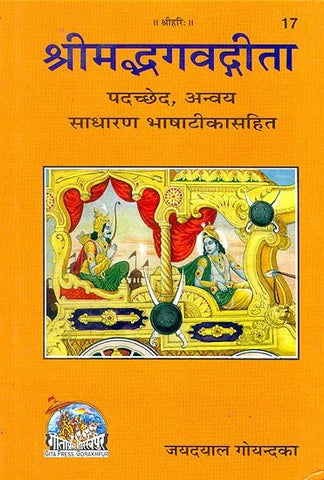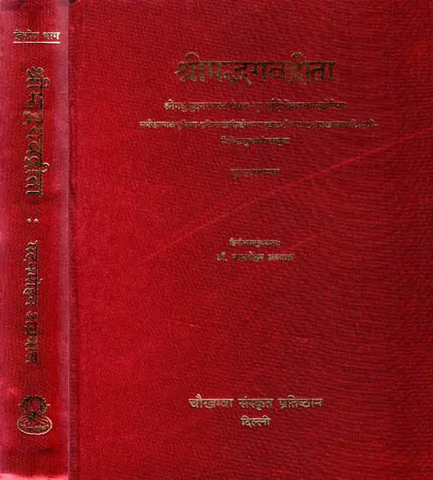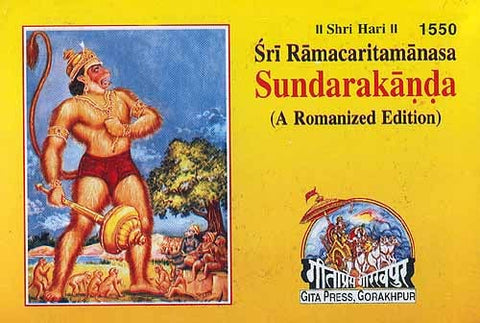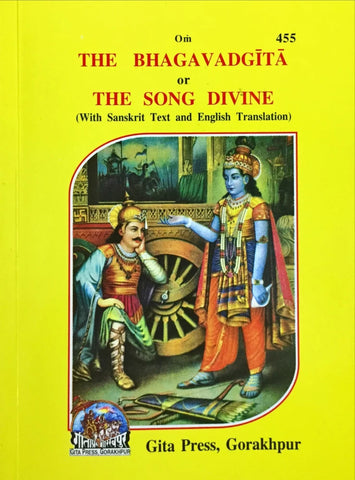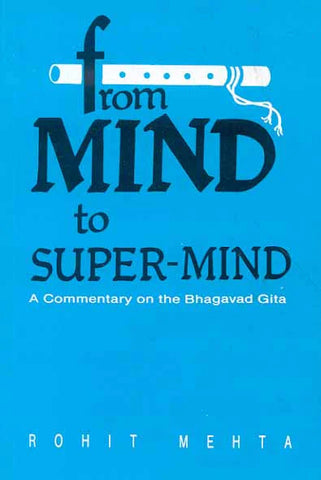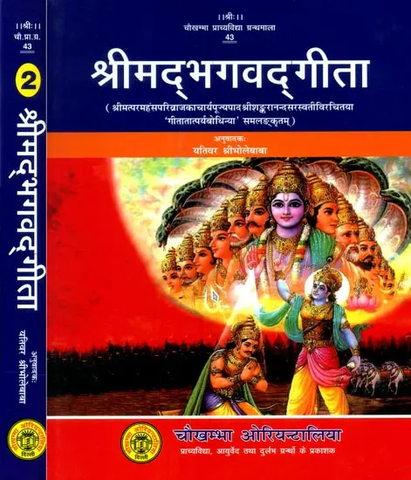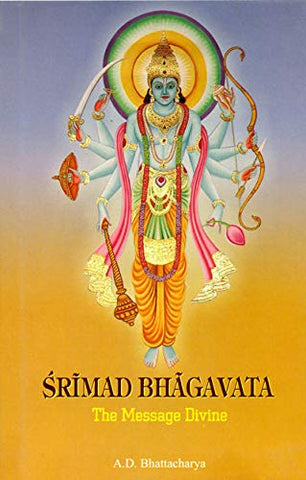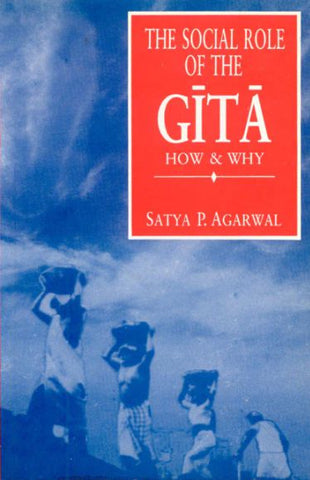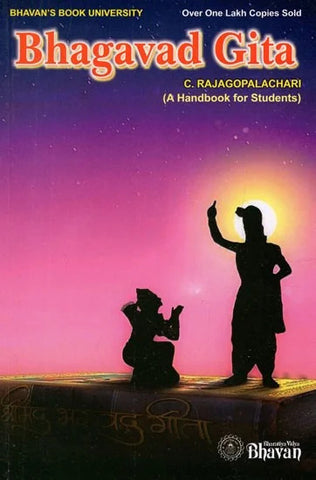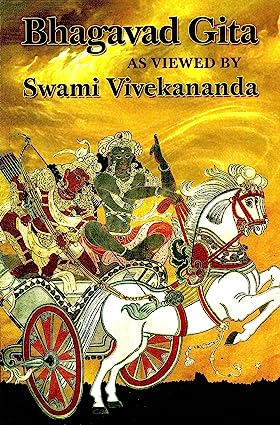Your cart is empty now.
Here is a rending of the Srimad Bhagawad Gita in English. The main feature of this translation is that the Sanskrit text has also been given in the Roman script. This enables those readers who do not know Sanskrit to get a fairly correct idea of the spirit of the epic. Before giving the translation of the entire verse, the author has given the meaning of each word in it. This will help in a better appreciation of the meaning.
The message and significance of the Srimad Bhagavad Gita have been acquainted with its central message.
Kailash Nath Kalia was born in Talwan (Punjab) and became increasingly interested in Indian philosophy during his active participation in the struggle for Indian independence in 1950, he joined the Vishveshvaranand Vedic Research Institute (Hoshiarpur, Punjab). He was serving as its Assistance Director. In 1966 he moved to the United Kingdom and founded the Vivekananda Centre, a charitable organization whose ethos allied service to spirituality. The Bhagavad Gita was fundamental to the author’s lifelong philanthropic work and service. He believed that Gita’s inspirational teachings provided spiritual guidance for the individual and enabled mutual respect and understanding of people. Kailash Nath Kalia passed away on June 23, 1989. This book has been prepared posthumously from the Girl’s message of universal harmony and spiritual enlightenment and so fulfils a cherished wish.
Srimad Bhagavad Gita presents “The Sermons from the Illustrious Lord Krsna to Arjuna;” compiled by the great ancient seer, Vyasa, which appears in eighteen chapters, 25-42, in the Bhisma Parva of the classic Mahabharata.
While translating from Sanskrit into English, the author has spent about ten years first realizing and then choosing the exact equivalent English words for the translation so that the beauty, substance, meanings, dignity and grace of the original are not disturbed. Though the melody and magic of the verses are difficult to recapture in another medium, the author has tried his utmost to bring it to its best. However, the mood in which the thought was born can only be realized by self-experience and devotion.
To feel the dignity of the phrase and the intensity of utterance, the author has given the text in Roman script so that those who know Sanskrit enjoy its fullness while pondering over its original, whereas others who do know Sanskrit also get a fairly correct idea of the poem.
After putting up the text in Roman, it has been rearranged to facilitate the meaning of the verse. Then appear the word-for-word meaning (vocabulary) and lastly, the verse has been translated into English as exactly so as not to deviate at all from its original. Srimad Bhagavad Gita is the Divine knowledge (Divya Jnana). It is revealed in its truth when one is able to establish communication with the Supreme Supreme Self (Paramatma). It is eternal (Santana). The gracious Lord Krsna has Himself said to Arjuna in chapter 4:
I proclaimed this imperishable yoga to Vivasvat (Sun God); Vivasat told this to his son Manu: Manu spoke this to his son lksvaku.
The royal sages came to know this, thus received through tradition, with the passage of a long time yoga was lost here, O Paramtapa (oppressor of foes).
This is the same ancient Yoga that has been spoken to thee today by Me. Thou art My devotee and My friend. That is why this supreme secret has been spoken to thee.
Time changes, people change, and environments change, but this yoga, imperishable and eternal, remains the same unchanged. This is a torchlight for the whole universe.
Srimad-Bhagavad-Gita, as the name indicates, is Celestial Song His Sermons. The Lord Himself had proclaimed it in the form of teaching to His most favourite comrade, disciple and devotee Arjuna.
A war-like situation had been created by the adamant and malicious attitude of Duryodhana, the eldest son of King Dhrtarastra, in refusing to transfer the kingdom of Indraprastha to the Pandavas to whom actually it belonged and which he had snatched from them mischievously in a game of dice with a condition that the Pandavas would live in exile for twelve years and incognito during the thirteenth year. After spending this period faithfully the Pandavas had returned and asked for their kingdom, which Duryodhana refused to hand over to them without war.
Since the war had become inevitable, the kings, the friends and the relatives all over had decided to join hands either with 'Kauravas' (Duryodhana’s side) or Pandavas as per their kinship and inclination in this big battle called 'The Mahabharata'. As per the request of Duryodhana and Arjuna together for obtaining the assistance of Lord Krsna, Lord Krsna in this situation offered to be on one side without any arms (without fighting )and his total army on the other side. Arjuna accepted Him on his side while Duryodhana was also equally pleased to have a big army of Lord Krsna on his side.
The battlefield had been chosen at the sacred place Kuruksetra, about 150 km from the present Delhi, the then Indraprastha. Since King Dhrtarastra was blind, he chose Samjaya, his most dependable secretary, and his chariot-driver also to narrate to him the total battlefield scene at his place. Samjaya was gifted with a power (Divyam Caksuh) to see what was happening on the battlefield.
At the request of Arjuna, Lord Krsna stationed his chariot between the two armies, facing each other on the battlefield, so that Arjuna could see the warriors with whom he had to fight. Here Arjuna saw to his surprise, in both the armies, grandfathers, fathers-in-law, uncles, brothers, cousins, his own relatives and their sons and grandsons, comrades, teachers and companions as well.
Seeing all these relations in both armies, Arjuna was filled with great compassion and spoke thus to Lord Krsna sorrowfully: "My limbs quail, my mouth goes dry, my body shakes and my hair stands on end. Gandiva (the bow) is slipping from my hand and my skin too is burning all over. I am not able to stand steady and my mind is reeling. And I am also seeing adverse omens." "O Krsna! do I see any good in killing all these own people in battle nor do I desire any victory, empire or pleasure?"
"Of what avail is dominion to us? Of what avail are pleasures and even life, O Krsna, if those, for whose sake this empire, enjoyment and pleasure is desired, themselves stand here in battle, having renounced even desire for life? There are my teachers, uncles, sons, grandfathers, maternal uncles, fathers-in-law, grandsons, brothers-in-law, besides other kinsmen."
"What pleasure indeed could be ours, O Krsna, from killing these sons of Dhrtarastra? Sin only would take hold of us by the slaying of these felons. How could we be happy by killing our own kinsmen? On the decay of a family, the immemorial religious rites of that family die out. On the destruction of spirituality, impiety further overwhelms the whole of family. On the prevalence of impiety, O Krsna, the women of the family become corrupt; and women being corrupted there arises confusion and intermingling of castes. Admixture of castes and its outcome indeed leads to the fall of the family. The so-born are thus the destroyers of the family as its immemorial religious rites ultimately perish." "Alas! What a great sin we have resolved to commit in striving to slay our own people through greed for the pleasure of a kingdom."
Having spoken thus on the battlefield, Arjuna sank down on the seat of his chariot, casting away his bow and arrow, his spirit overwhelmed by sorrow.
Facing this situation, the Blessed Lord Krsna said: " At such a juncture, whence comes upon thee, O Arjuna, this dejection? It is unlikely for the noblemen as it is contrary to the attainment of heaven. Yield not to this unmanliness, O Arjuna, for it does not fit on thee. Cast off this petty weakness of mind and get up."
Arjuna again argued, "I can not strike Bhisma (The Great-Grandfather) and Drone (my Revered Teacher) with arrows as both of them are worthy of worship. By killing these great men, would not it be to gain a kingdom smeared with their blood? Indeed I can scarcely tell which will be better, that we should conquer the Kauravas or they should conquer us. Thus with my nature overpowered by weak commiseration and mind bewildered about my duty, I ask thee; Tell me, for certain, which is better. I am Thy pupil; teach me, as I am seeking refuge in Thee."
To his solace, the Blessed Lord said: "Thou grievest for those whom thou should not grieve for, and yet thou speakest words of deep wisdom. Pundits do not grieve for the dead or for the living. Never was there a time when I was not, or thou, or these lords of men, nor will there ever be a time hereafter when we all shall cease to be? As a childhood, youth and old age are to the soul in this body, so is the attainment of another body. A resolute person is therefore not deluded. The contact of senses with their objects, O Arjuna, gives cold and heat or pleasure and pain. These are transitory. They come and go. Therefore O Bharata (Arjuna), put up with them."
Sample Pages
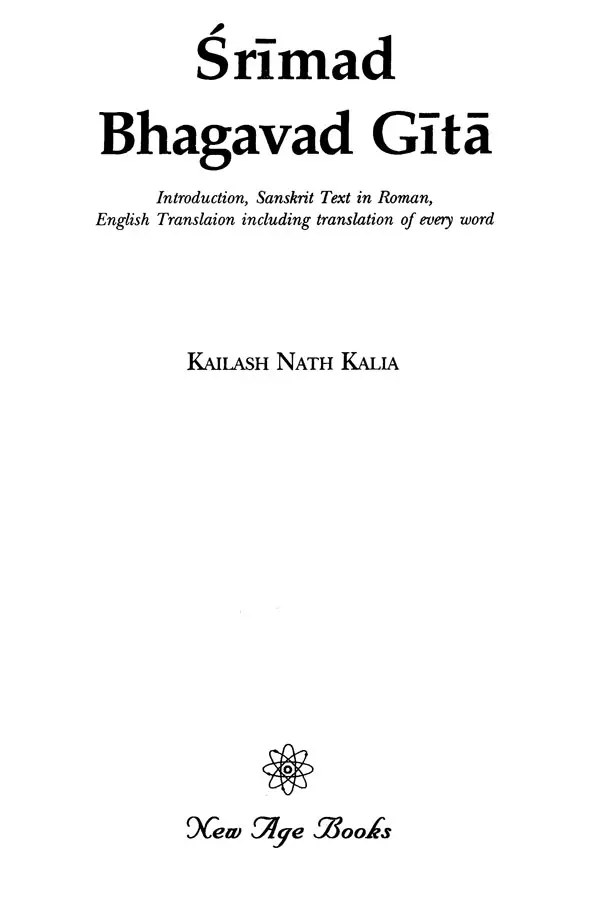
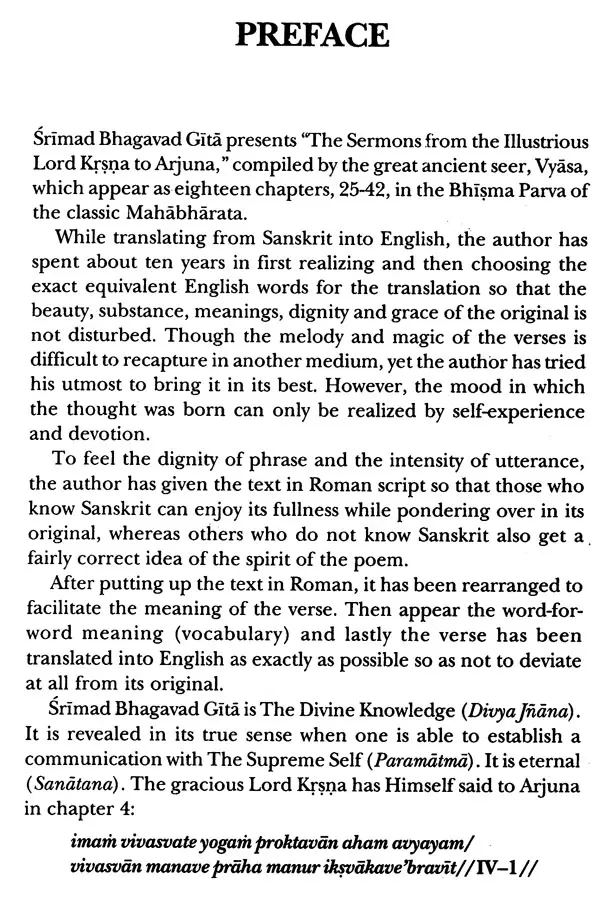
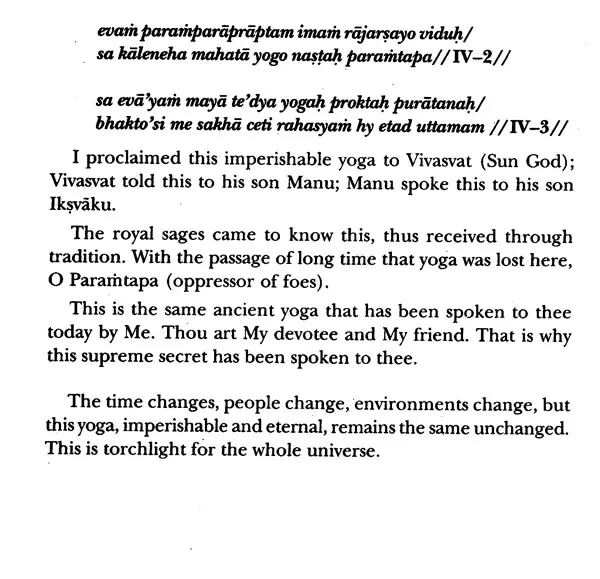
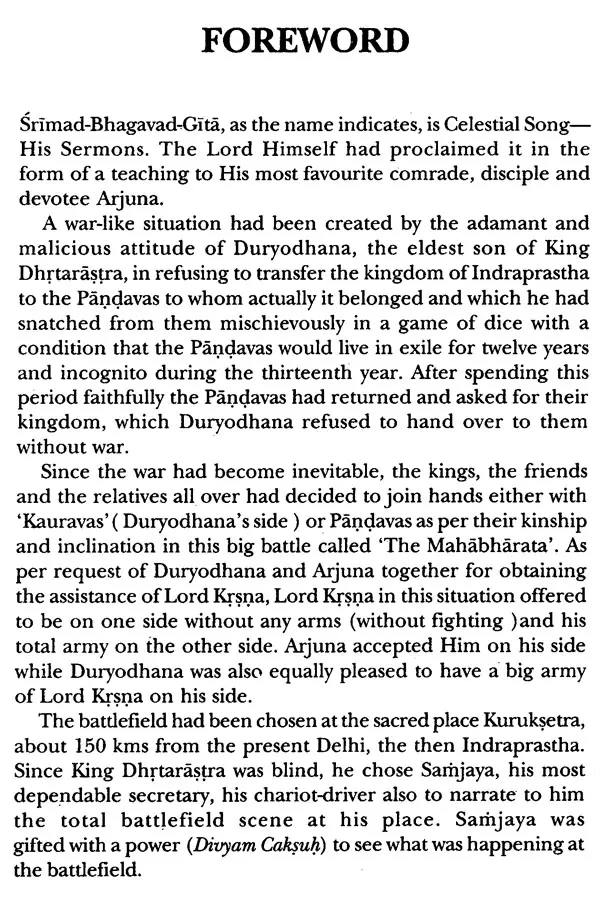

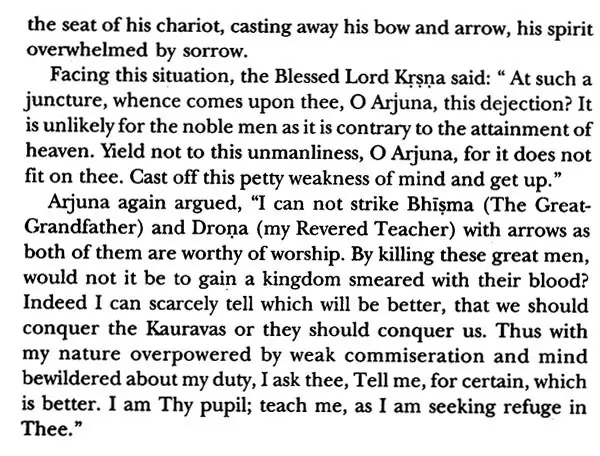
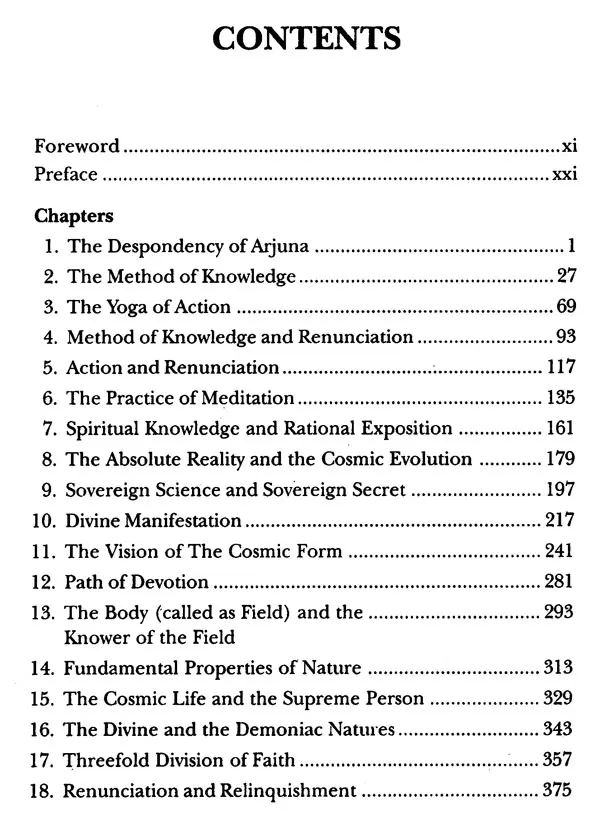

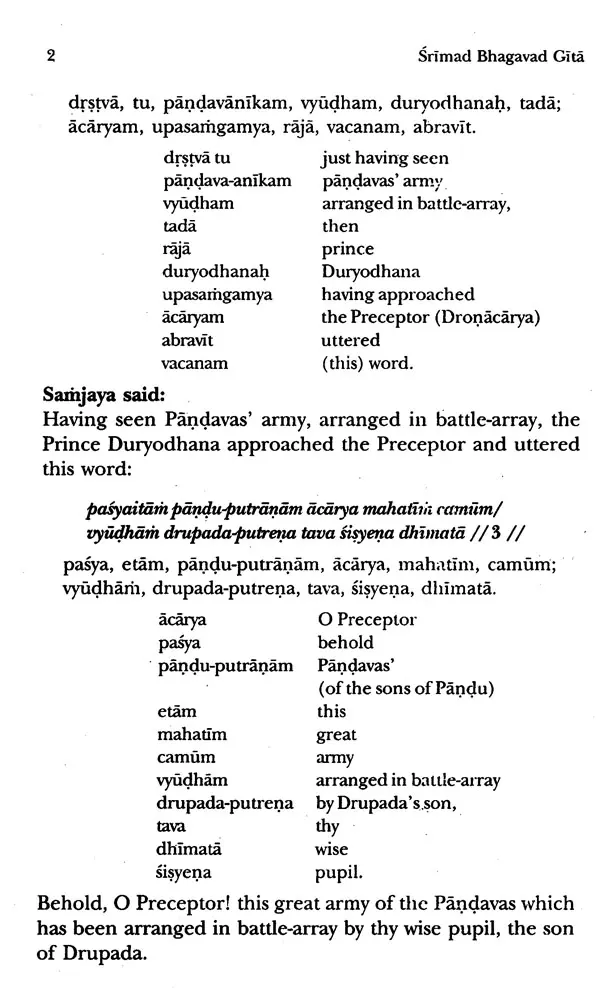


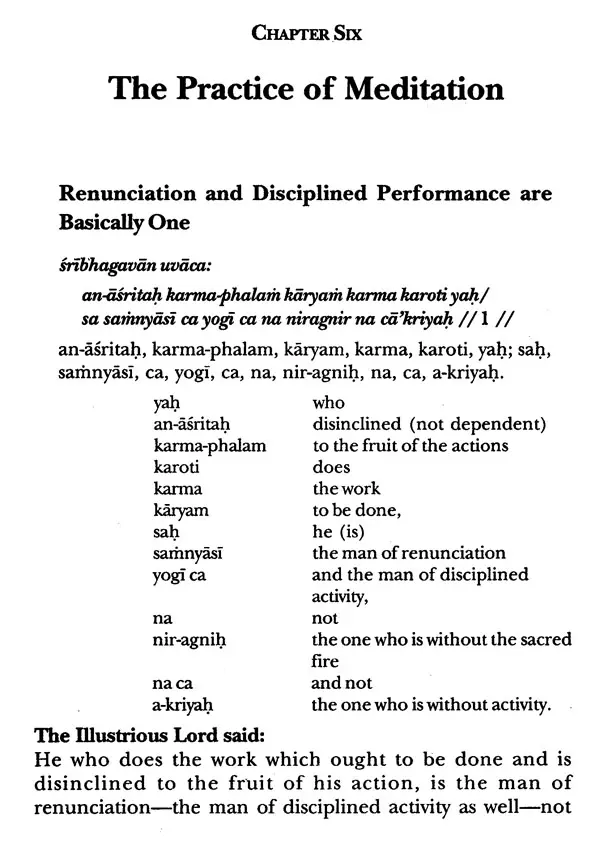





Delivery and Shipping Policy
- INTERNATIONAL SHIPPING
- Rs.1000-1100/kg
- ESTD. Delivery Time: 2-3 weeks (depending on location)
- Bubble Wrapped with Extra Padding
- NATIONAL SHIPPING
- NCR: Rs. 30/half kg
- Standard: Rs. 80/half kg
- Express shipments also available on Request
- ESTD. Delivery Time: Ranging from 1-4 days up to 7 business days (Depending on your choice of Delivery)
- TRACKING
- All orders; national or international, will be provided with a Tracking ID to check the status of their respective orders
- Depending on the Shipping Service, Tracking ID may be used on their respective tracking portals


